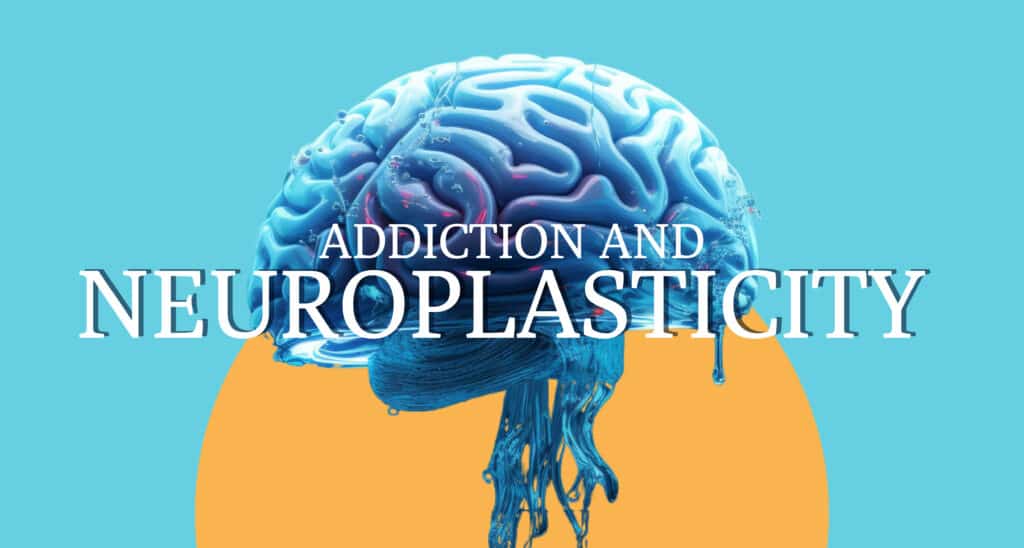In recent years, the intersection of addiction and neuroplasticity has become a focal point in understanding how addiction affects the brain and its potential for recovery. This blog post delves into the intricate relationship between addiction and neuroplasticity, exploring how the brain adapts to addiction and the implications for treatment and recovery.
What is Neuroplasticity?
Neuroplasticity, often referred to as brain plasticity, is the brain’s ability to reorganize itself by forming new neural connections throughout life. This phenomenon plays a crucial role in learning, memory, and recovery from injuries. In the context of addiction, neuroplasticity becomes a pivotal factor in both the development and treatment of addictive behaviors.
Addiction and the Brain: The Neurobiology
Addiction is characterized by compulsive drug-seeking and use despite harmful consequences. It fundamentally alters the brain’s structure and function, particularly affecting areas involved in reward, motivation, learning, and memory. Key neurotransmitters such as dopamine, serotonin, and glutamate play significant roles in reinforcing addictive behaviors.
- Dopamine and Reward Pathways: Addiction hijacks the brain’s reward system, causing heightened dopamine release in response to substances or behaviors, reinforcing the addictive cycle.
- Neurotransmitter Imbalance: Imbalances in neurotransmitters like serotonin and glutamate contribute to cravings, withdrawal symptoms, and difficulty controlling impulses.
Neuroplasticity in Addiction: Adapting to Change
Despite the profound impact of addiction on the brain, neuroplasticity offers hope for recovery. Research indicates that the brain can undergo structural and functional changes in response to treatment interventions and behavioral modifications.
- Rewiring Neural Circuits: Through targeted therapies and interventions, neuroplasticity allows for the rewiring of neural circuits associated with addictive behaviors.
- Cognitive Behavioral Therapy (CBT): Utilizes neuroplasticity principles to restructure thought patterns and responses to triggers, promoting long-term sobriety.
- Mindfulness and Meditation: Practices that enhance neuroplasticity, aiding in emotional regulation and reducing cravings.
Treatment Approaches Leveraging Neuroplasticity
Effective addiction treatment integrates neuroplasticity-focused strategies to facilitate recovery and prevent relapse. Personalized treatment plans often include:
- Medication-Assisted Treatment (MAT): Combines medications to reduce cravings with behavioral therapies to retrain neural pathways.
- Neurofeedback Therapy: Uses real-time monitoring of brain activity to teach self-regulation, promoting healthier neural connections.
- Physical Exercise and Nutrition: Enhance neuroplasticity and overall brain health, supporting recovery outcomes.
FAQs About Addiction and Neuroplasticity
Can neuroplasticity help in overcoming severe addictions?
Yes, neuroplasticity-based therapies have shown promise in treating even severe addictions by reshaping brain function and behavior over time.
How long does it take for the brain to recover from addiction?
Neuroplasticity varies among individuals, but significant improvements in brain function can occur with sustained abstinence and targeted therapies.
What role does stress play in neuroplasticity during addiction recovery?
Chronic stress can hinder neuroplasticity, emphasizing the importance of stress management in recovery programs.
The Role of Coastal Detox of Southern California
Located in the heart of San Diego, Coastal Detox of Southern California is a leading addiction treatment facility specializing in evidence-based therapies that harness neuroplasticity for effective recovery. Their holistic approach combines medical expertise with compassionate care to support individuals on their journey to sobriety.
Whether you or a loved one are grappling with addiction, understanding the profound relationship between addiction and neuroplasticity is crucial. By leveraging the brain’s ability to adapt and change, recovery becomes not just a possibility but a tangible reality.
In conclusion, addiction and neuroplasticity are intricately linked, offering new insights into effective treatment strategies. With ongoing research and innovative therapies, the future holds promise for improved outcomes in addiction recovery. Discover how Coastal Detox of Southern California can provide the support and resources needed to embark on a path towards lasting sobriety.









